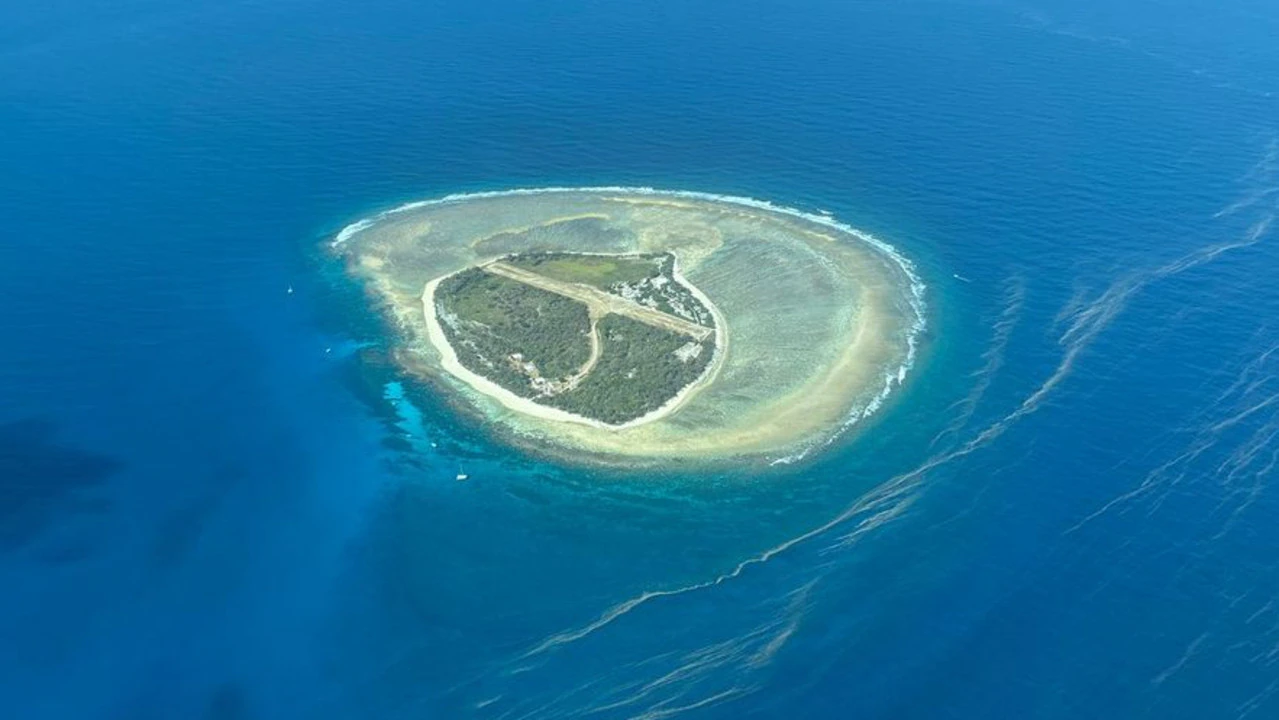Copyright news

But even in our increasingly polarised political climate, there appears to be one major issue that remains wholly bipartisan. A new study has revealed that just about every Aussie is haunted by what might become of our largest natural wonder. The Great Barrier Reef is once again at the centre of renewed national focus, as activist groups warn authorities that bold action is needed immediately to secure its future. In a new report co-unveiled with leading economic data, the Great Barrier Reef Foundation (GBRF) warns that while the reef remains one of the world’s most important ecosystems, its survival is not assured without major investment and climate action. The Reef contributes an estimated $9 billion annually to Australia’s economy and supports around 77,000 full-time jobs, making it roughly equivalent in employment to the country’s fifth-largest employer. Tourists travel far and wide to visit Cairns and the surrounding Far North Queensland region for its natural beauty. The foot traffic has led analysts to estimate the reef’s broader “asset value” at a whopping $95 billion. But there are billions still being left on the table, according to the Foundation. New economic modelling by Deloitte Access Economics suggests that with urgent climate action and substantial adaptation investment, the reef could unlock another $124 billion in opportunity over the next 50 years. The economists warn that without investment, the national treasure may not endure. The study also revealed that Australians overwhelmingly back the reef’s protection regardless of their politics. National polling commissioned by the Foundation found that 98 per cent of Australians believe losing the reef would be “a national tragedy,” with nearly three-quarters describing such a loss as “significant” or “irreplaceable”. Nine in ten are concerned about the risks posed by climate change, and 78 per cent say protecting the reef for future generations is very or extremely important. “The Reef is simply too precious to lose,” said Managing Director Anna Marsden during the announcement. “Together, the Deloitte findings and national polling present a powerful case: safeguarding the Reef is vital not only to the people and communities that rely on its survival, but to the overwhelming majority of Australians who want it to endure for generations.” Australia has already been seen as taking a leading role in reef conservation innovation, the Foundation said — including efforts in assisted coral evolution, large-scale restoration, and control of the crown-of-thorns starfish. “These breakthroughs have delivered more progress in the past five years than in the previous fifty,” the organisation said. Nonetheless, Marsden warns that “without a step-change in funding from both public and private sectors, these advances won’t be enough to outpace climate threats”. “The Reef is not gone — but time is running out. Every dollar we invest today is an investment in Australia’s economy, culture, and global reputation tomorrow. We have the tools, the knowledge, and the choice to protect it. We just need the will,” she said. The state of the Reef The Great Barrier Reef is facing one of the most critical periods in its history, with scientists warning it has suffered unprecedented stress in recent years. The Australian Institute of Marine Science recently reported the largest annual declines in hard coral cover on record in two of the Reef’s three major regions during 2024 and 2025. They say the losses have been driven largely by climate change, with the Reef enduring at least five mass bleaching events since 2016 — including two back-to-back events in 2024 and 2025. Alongside these climate-related threats, local pressures are also eroding the Reef’s resilience. Water pollution from agricultural run-off and flood plumes remains the most significant local stressor, reducing water quality and making coral communities more vulnerable to heat stress. Conservation groups argue that without stronger action, the combined effect of warming seas and pollution will continue to push the Reef into decline. The World Heritage Committee has even ordered a full review of Australia’s management of the Reef. On the local front, the Australian and Queensland Governments have put in place the Reef 2050 Long-Term Sustainability Plan, a 35-year strategy designed to guide the Reef’s recovery. More than A$5 billion has been committed to conservation measures between 2014 and 2030, funding a wide range of activities — from tackling crown-of-thorns starfish outbreaks and improving land management to reduce run-off, to expanding marine protected areas and partnering with Traditional Owner groups in Reef stewardship.



